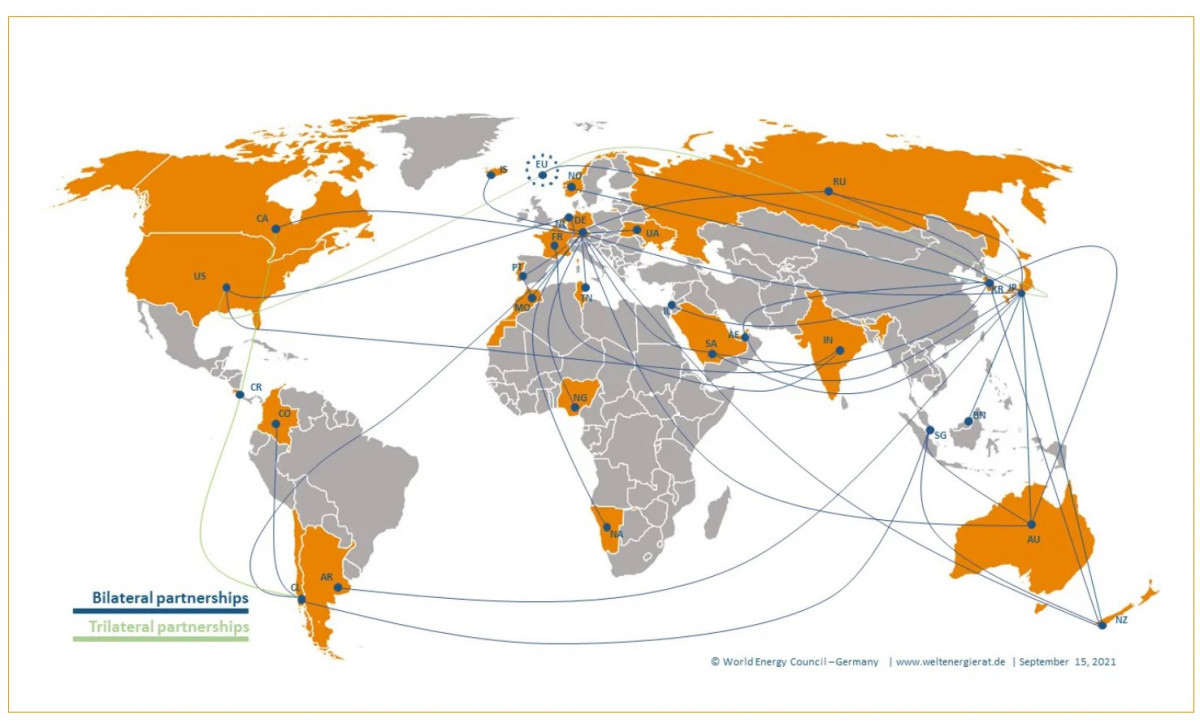Hydrogen import-export partnerships “booming” around the world
The number of hydrogen partnerships around the world is increasing and is likely to grow even further, data from the World Energy Council suggests. In a press release, the organisation counts 41 import-export partnerships for low CO2 or neutral hydrogen (H2) established around the world since 2017, with the majority emerging in the past two years. Germany and Japan have established the largest number of partnerships, with 13 and nine respectively. "More and more countries around the world are turning to low-CO2 or -neutral hydrogen (H2) to achieve their climate and energy goals," explains Dr Carsten Rolle, executive director of the German branch of the World Energy Council. "However, many countries will not have sufficient generation capacities of their own to meet their demand for hydrogen in the future – for example, because the expansion potential for renewable energies is limited."
In their analysis, World Energy Council noticed that H2 partnerships are often concentrated in a few countries. Germany, Japan and South Korea - likely to become net importers of hydrogen - entered into a particularly large number of intergovernmental H2 relationships. But countries that hope to gain economic benefits from H2 exports and build an H2 economy, such as Australia, Chile and Saudi Arabia, are also increasingly active internationally in seeking partners to build H2 collaborations, the analysis found.
Germany sees hydrogen made with renewable sources as a “silver bullet” for decarbonising its heavy industries, and has been investing heavily in it.


